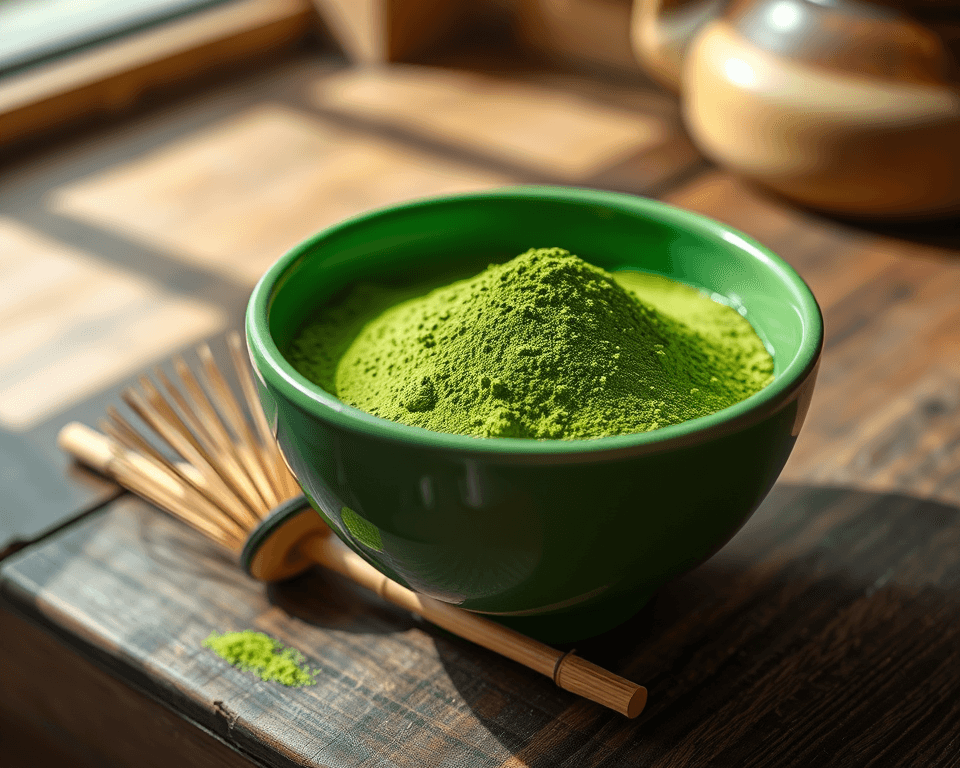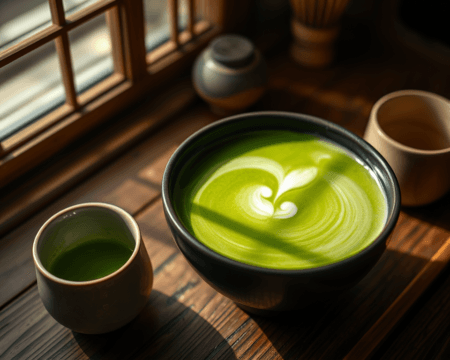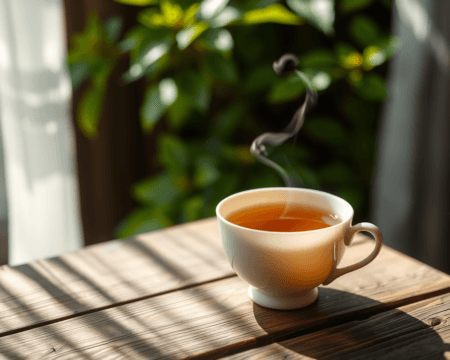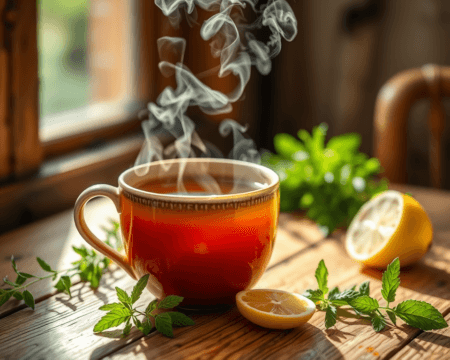You’ve probably heard about matcha tea, that trendy green powder that’s sneaking its way into everything from lattes to desserts. But here’s the million-dollar question: Does matcha tea expire? If you’re like me, you appreciate details—especially when it comes to something you’re consuming regularly. So, let’s break it down together and get to the bottom of matcha’s longevity and storage tips.
Key Takeaways
- Matcha tea doesn’t technically “expire,” but its freshness can diminish over time.
- Proper storage is key to maintaining matcha quality.
- Look for signs of spoilage such as color changes or off smells.
- Different types of matcha have varying shelf lives.
- Misconceptions abound about matcha’s expiration—let’s clear those up.
Understanding Matcha Tea and Its Expiration
What is Matcha Tea?
I love matcha. This vibrant green powder—not just your average green tea—comes finely ground from shade-grown tea leaves. It’s part of the tea culture in Japan and has found its way into our hearts (and mugs). You might know it as ceremonial matcha, used in traditional tea ceremonies, or as culinary matcha, perfect for cooking and baking.
While green tea is brewed by steeping leaves, matcha is all about consuming the whole leaf, which means you’re getting a big punch of antioxidants and nutrients. That’s right—this powdered tea packs a serious health punch. Whether you’re looking to boost energy or enhance focus, matcha makes quite the beverage.
Does Matcha Tea Expire?
Let’s tackle the meat of the matter. Does matcha tea have an expiration date? Technically, no. Matcha doesn’t expire in the traditional sense. Instead, it gradually loses its freshness over time.
The best before date you see on the package? It’s a guideline, not a hard stop. If stored properly, matcha could last a while without going bad, but its quality, flavor, and health benefits might start to deteriorate as time passes. So, keep it fresh to keep reaping those benefits!
Now, what about spoilage risks? If you notice that vibrant green turning dull or developing a weird smell, it’s time for a one-way ticket to the trash. Fresh matcha should have a rich, grassy aroma. If it’s lost that, chances are it’s no longer at its best.
Factors Affecting Matcha Tea’s Longevity
Types of Matcha and Their Lifespan
The type of matcha you choose can drastically impact its lifespan. Here’s the lowdown:
Ceremonial Matcha: This premium-grade matcha is meant for traditional tea ceremonies. It’s the crème de la crème, and when packed correctly, usually lasts about 6-12 months. Since you’re probably using this for special occasions, you’ll want it fresh.
Culinary Matcha: This type is for cooking and baking. It’s not as delicate, and generally, you can count on it lasting about 1 year or more, depending on storage.
Premium vs. Organic Matcha: Organic matcha may have varying lifespans influenced by how it’s processed and packaged. Look for brands that specify their processing techniques.
The takeaway here? Freshness factors like oxidation—when matcha is exposed to air—and nutrient degradation due to light or moisture can speed up deterioration. So always think about what you’re getting.
Storage Conditions for Matcha Tea
Storing matcha properly is crucial for maintaining its freshness. Imagine this: you’ve just dropped some cash on high-quality matcha, and then you let it sit in the open air for weeks. Bummer, right?
Here are the best practices for storing matcha:
– Airtight Containers: Use airtight containers to keep moisture out. Light and humidity can wreak havoc on matcha, leading to a loss of flavor and color.
Cool, Dark Place: Avoid storing it near the stove or in direct sunlight. Instead, find a nice cabinet or drawer where it can chill away from light.
Refrigeration: This isn’t always necessary, but if you live in a particularly warm or humid area, consider refrigerating your matcha. Just be sure to let it acclimate to room temperature before opening it to avoid condensation.
By paying attention to these storage tips, you can maximize your matcha’s shelf life.
Signs of Spoilage in Matcha Tea
How to Tell if Your Matcha Tea is Still Good
But how do you know if your matcha is still fresh? I’ve got your back. Spoilage indicators can range from visual to olfactory. Here are the big red flags:
Color Change: Fresh matcha boasts a vibrant green hue. If it starts looking yellow or brown, it’s a clear sign it’s past its prime.
Aroma: Fresh matcha has a grassy, sweet scent. If you catch a whiff that’s more akin to a damp cardboard box, toss it.
Texture and Clumping: If your matcha is clumping or feels gritty, it’s a sign of moisture exposure. Those little clumps aren’t what you want in your perfectly foamed matcha latte.
Let your senses guide you. If something feels off, trust your instincts and consider a replacement.
Common Misconceptions About Matcha Tea Expiration
It’s easy to get caught up in misinformation regarding matcha. Many people believe if it’s in a sealed bag, it’s good to go for life—wrong. Matcha is agricultural, and like your favorite fruits and veggies, it goes through changes over time.
Another myth? Some think if there’s an expiration date, it means game over. But remember, that date is just a guideline. Proper storage can extend its lifespan significantly.
Let’s clear this up: matcha may not “expire” in the usual sense, but it absolutely can lose its charm due to negligence.
Best Practices for Storing Matcha Tea
Recommended Storage Methods
Alright, here’s where we put all that knowledge into action. Proper storage can keep your matcha tasting top-notch and fresh. Aim for these methods:
Airtight Containers: Look for something like the Tea Tactics Matcha Canister. It’s designed to keep out moisture and light and typically retails for about $20. Totally worth it if you’re serious about matcha.
Refrigeration Options: If you choose to refrigerate, ensure it’s double-sealed to prevent moisture. Don’t let it sweat!
Long-term Storage: If you’ve got a larger stash, consider vacuum-sealing small portions to keep them protected from air exposure.
Comparison of Powdered Matcha and Tea Bags
Here’s a little compare-and-contrast to help you choose what works best for you. Most premium quality matcha will come in powdered form, typically offering a superior flavor and experience compared to your standard tea bag matcha:
| Aspect | Powdered Matcha | Tea Bag Matcha |
|---|---|---|
| Flavor Profile | Rich, herbal, vibrant | Lacks depth, often muted |
| Nutritional Value | High in antioxidants and nutrients | Lower due to less leaf consumption |
| Freshness/Storage | Needs proper storage | Usually less potent over time |
| Culinary Uses | Versatile in cooking | Primarily for steeping |
| Convenience | Requires prep (whisking) | Easy and quick to brew |
When you want to get the real deal from your matcha, powdered varieties should be your go-to. Brands like Jade Leaf or Encha offer high-quality options that can elevate any drink or dish.
So, next time you reach for that matcha, remember: store it well, sniff it often, and enjoy every last vibrant drop. You’ll thank yourself later!
Frequently Asked Questions
How should I store matcha tea for maximum freshness?
To maintain matcha’s freshness, store it in an airtight container away from light, heat, and moisture. A cool, dark place like a pantry or refrigerator is ideal, as this helps prevent oxidation and keeps the flavor vibrant.
Does matcha tea have a shelf life?
While matcha does not “expire,” its flavor and nutritional quality can fade over time. Typically, high-quality matcha can last up to 6 months if stored properly, while lower grades may have a shorter freshness window.
What are the signs that my matcha has gone bad?
Indicators of spoiled matcha include a dull color (instead of a vibrant green), an off smell (like a stale or sour odor), or a clumpy texture. If you notice any of these signs, it’s best to discard the matcha.
Can I freeze matcha tea to keep it fresh longer?
Freezing matcha is generally not recommended, as it can alter the texture and flavor. If you choose to freeze it, use an airtight container, and ensure it’s fully sealed to prevent moisture from affecting the matcha.
Is there a difference between culinary and ceremonial grade matcha?
Yes, culinary grade matcha is typically used for cooking and baking and is less refined than ceremonial grade, which is intended for drinking. Ceremonial matcha is usually higher quality, offering a more delicate flavor and vibrant color.
Can I use matcha after its best before date?
While matcha doesn’t technically expire, its quality may diminish after the best before date. If the matcha still looks and smells fresh, it may still be safe to consume, but the flavor could be compromised.
How can I tell if matcha is high quality?
High-quality matcha is vibrant green, finely ground, and has a smooth, slightly sweet flavor profile. Look for brands that specify their matcha’s origin, and prefer organic options when possible for purity.
What is the best way to prepare matcha for drinking?
To prepare matcha, sift 1-2 teaspoons of matcha powder into a bowl, add hot water (not boiling), and whisk with a bamboo whisk until frothy. Adjust the amount of matcha and water to suit your taste preference.
Can matcha tea provide health benefits?
Yes, matcha is rich in antioxidants, particularly catechins, which can support metabolism and provide a calm energy boost. Additionally, it may enhance focus and promote relaxation, making it a popular choice for wellness enthusiasts.










